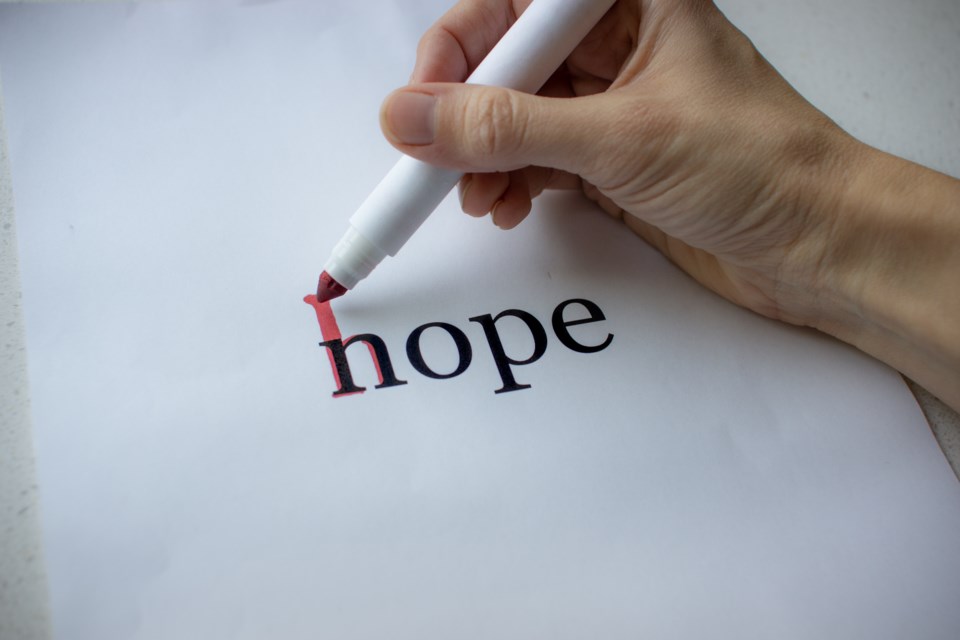I used to scoff when my mother would talk about the power of words; of invisible, universal vibrations and vast forces beyond our control or understanding.
I fashioned myself an unflappable, no-nonsense realist, for a time at least, and no amount of pseudo-self-help bullshit was going to break down my barriers.
So when mom sent me for my birthday one year a box full of literal rocks, much scoffing and eye-rolling ensued.
Thanks for the rocks, mom.
But they weren’t just any rocks—each one came with a simple inscription: words like love, courage, joy, gratitude, and peace.
I set them aside, not thinking much of it other than I would have preferred some cash, or something more practical.
But over time I have come to understand the true power words can have on our day-to-day lives—and in turn, the wider world and the way we interact with it.
With Earth Day set for Saturday, April 22, it’s worth thinking about how this relationship plays out in our discussions about climate change. Are phrases like “heat dome” and “climate time bomb” and “irreversible consequences” helpful? Or are they just pushing more anxiety on an already-too-anxious populace?
In a recent episode of CBC’s Planet Wonder, climatologist Johanna Wagstaffe posed the question: Is talking about climate change actually making it worse?
The short answer is, yes—and not just anecdotally. A recent Gallup World Risk poll found global concern over climate change actually fell 1.5 per cent last year.
“How we talk about climate change matters. The way we talk about climate change right now is unfortunately not great for engaging people in this topic, because the current narrative on climate change is about doom and gloom,” behavioural psychologist Jiaying Zhao told CBC.
“The framing right now is very negative, and this negativity makes us feel anxious, depressed, withdrawn, so we’re actually not effectively engaging with the topic.”
Zhao’s proposed alternative is called the “happy climate” approach—reframing the conversation around things we can do to reduce emissions that will also make us happy.
“I think the doom-and-gloom narrative is too heavy,” Zhao said. “It’s paralyzing. It makes us retreat and disengage. So the behavioural impact is actually the opposite of what we hope people would do. And this is where we need to turn the narrative into a positive frame.”
One way to do that is by shifting the focus from personal sacrifice, which comes with inherent negative connotations and makes people feel shameful or guilty, to something more positive.
“Instead of saying ‘drive less,’ we should say, ‘drive more people.’ Why is that important? One, you are driving more people who would otherwise be driving by themselves, so you are saving the emissions by carpooling. Second, social connections, hanging out with friends and family in the car, actually can make you feel happier, because social interaction is the No. 1 predictor of happiness around the world,” Zhao said.
“It’s not to say don’t drive, or drive less. No, drive as much as you want, but drive other people with you.”
Or, rather than saying “eat less meat,” we can pledge to “eat more plants,” Zhao added.
“Yeah, eat meat, but make it a treat,” she said.
“That’s kind of the principle of happiness, is abundance reduces appreciation. Instead, we should make those, let’s say high-emission items, foods, or activities, a treat.”
The power of words goes well beyond how we frame discussions in the public square. The words we centre in our minds each day are active determinants in our underlying state of being, whether we realize it or not—which is what my mother was trying to explain to me by sending me inscribed rocks for my birthday.
And while I used to scoff, I have come to rely greatly on my rocks in recent years, rotating the words I need on a given day to the front of the pack; pushing those I’d rather forget, for now, to the back.
It’s not magic, or a cure-all. We cannot will good things into existence, or alter the fabric of reality with our words.
But we can, each and every one of us, be a force for positivity in the world, however we show up in it each day.
So choose your words carefully.




